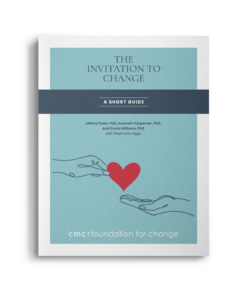ITC in NYS
support & skills groups
NYC & Westchester ITC Group
When
Tuesdays, 7:30 - 9 pm ET
October 22 2024 - February 18 2025
Full schedule below
Where
Online - Zoom
Cost
Free
Who
This group is only available to residents of New York State. For groups outside of NY please see our Group Directory
Region
New York City, Westchester, and surrounding areas
Group Leaders
Ellen Levine and Andrea Kneier
Description
CMC:Foundation for Change is offering free, 15-week support and skills groups in locations across New York State, for anyone who has a loved one struggling with substance use.
In this group, participants will use the Invitation to Change Approach to reflect on what it means to help, reimagine the role that loved ones can play in the change process, and learn evidence-supported strategies for helping a loved one struggling with addiction.
+++
This listing is for our NYC/Westchester Group, for residents of the New York City, Westchester, and surrounding areas.
Please note also that this specific group is geared primarily towards parents/caregivers of people struggling with substances.
+++
This offering is part of our NYS Groups Program, with support from the Mother Cabrini Health Foundation
More New York State groups available on our NYS Groups Page.
Groups outside of NYS available in our ITC Group Directory.
Tuesday evenings, 7:30 – 9 pm ET
October 22 2024 – February 18 2025
No meetings on the weeks of November 25th, December 23rd, and December 30th.
The Invitation to Change Approach is grounded in compassion, connection, and the understanding that families can have a powerful helping impact on those struggling to change. The ITC Approach draws on evidence-based practices also found in Acceptance and Commitment Therapy (ACT), Motivational Interviewing (MI), and the Community Reinforcement and Family Training approach (CRAFT), as well as decades of clinical experience working with families and loved ones.
Built on the three pillars of Understanding, Awareness, and Action, the ITC first illuminates new perspectives on substance use and the process of change; next, it creates a foundation of self-awareness and willingness to engage with emotional pain. Finally, it emphasizes action, teaching communication and behavior skills to promote and support new behaviors in a person struggling with substance use.
The ITC was created with the idea of a waterfall in mind: the evidence-based ideas and strategies you learn will flow from you, to the families you work with, to the loved ones they are desperate to help. Families, clinicians, and those struggling can all take these ideas and methods and put them to use with practice, patience, and self-compassion.
